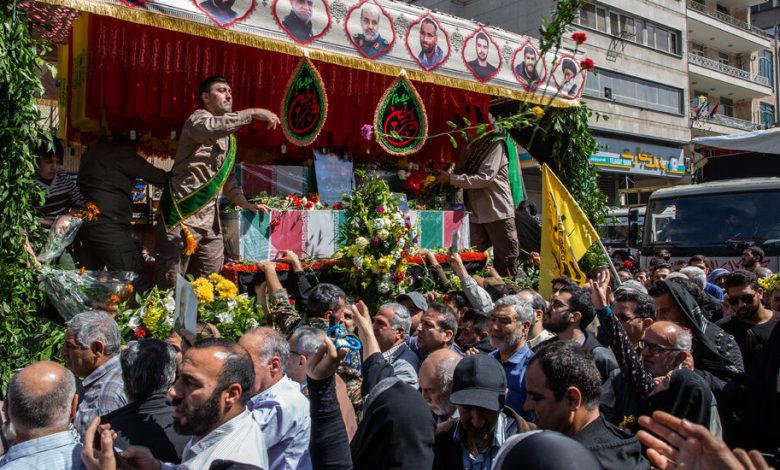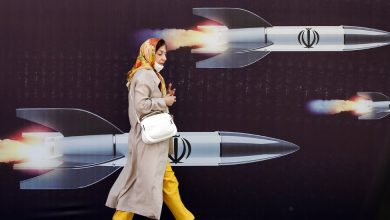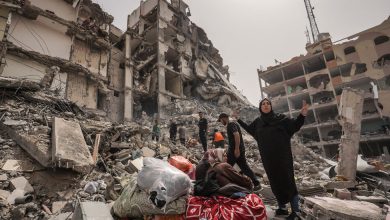Iran vows revenge at a funeral for commanders killed in an Israeli airstrike.

There are precedents for a forceful response by Iran to the Israeli airstrike in Syria on Monday that killed senior commanders and other officers of Iran’s elite Quds Force.
Four years ago, after the United States killed the chief of the Quds Force, Maj. Gen. Qassim Suleimani, Iran fired missiles at U.S. bases in Iraq, injuring more than 100 troops.
Though its proxy militias around the Middle East have launched a number of attacks on Israel since the war between Israel and Hamas began on Oct. 7, Iran has taken care to avoid a direct conflict that could lead to full-fledged war.
In the past few months, Israel has killed at least 18 members of the Quds Force, among them four senior commanders who were veterans of Middle East wars, according to the Iranian news media. But the airstrike in Damascus was far out of the ordinary, both in killing so many senior figures at once and in hitting a diplomatic building, normally considered off limits in conflicts. Israeli officials said the building functioned as a Revolutionary Guards base and was therefore a legitimate target.
The building housed the official residence of Iran’s ambassador to Syria, who said on state television that he and his family had left the building when it was hit.
The Quds force, an arm of Iran’s Revolutionary Guards, conducts military and intelligence operations outside Iran, often working closely with allies that oppose Israel and the United States, including Syria, Hezbollah in Lebanon and Hamas.
Iran’s ambassador to the United Nations, Amir Saeed Iravani, said on Thursday that he would give interviews to U.S. news outlets “after Iran’s response to Israel.”
Hassan Nasrallah, the leader of Hezbollah, delivered a video speech that was broadcast in Iran and in Lebanon during the funeral for the men killed in the Israeli airstrike in Damascus, Syria. In the remarks, he said that “the Iranian response to the targeting in Damascus is inevitably coming.”
The final decision on a matter as important as a strike against Israel rests with Supreme Leader Ayatollah Ali Khamenei, who is also the commander in chief of the armed forces. It was Mr. Khamenei who ordered the 2020 attack in retaliation for the killing of General Suleimani.



